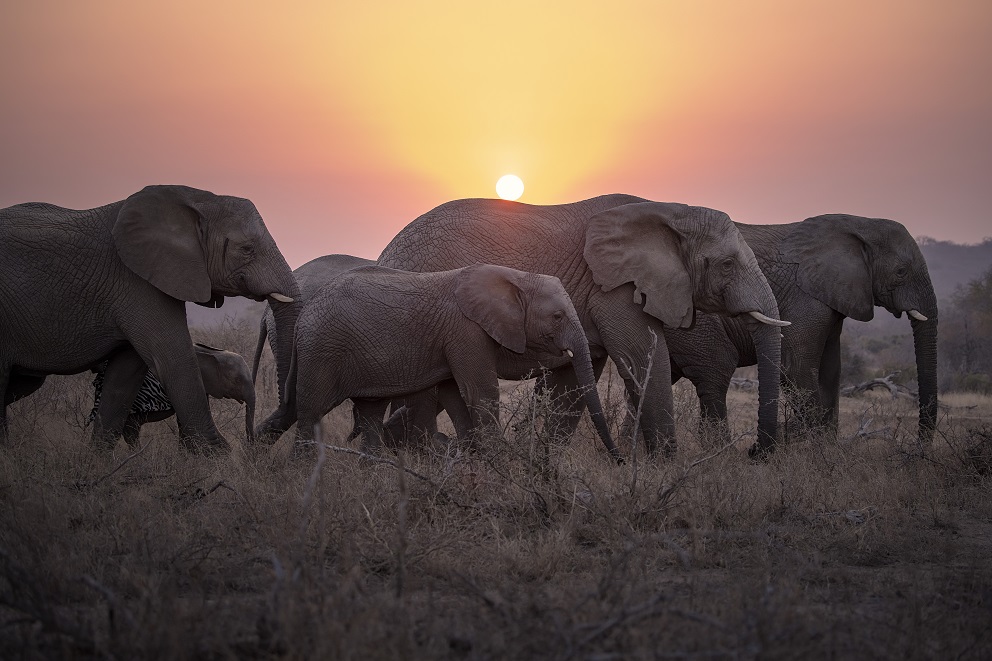As the world celebrates World Water Day, the significance of this vital resource becomes more evident than ever. This year’s theme – leveraging water for peace – highlights the role that water plays in sustaining life and promoting peace. At HERD, water is necessary for the elephants in our care, for the HERD staff, and to foster harmony within our ecosystem.
In this blog post, we take a close look at how water is used at HERD, how scheduled blackouts impact our access to water, and how water scarcity contributes to human-wildlife conflict.
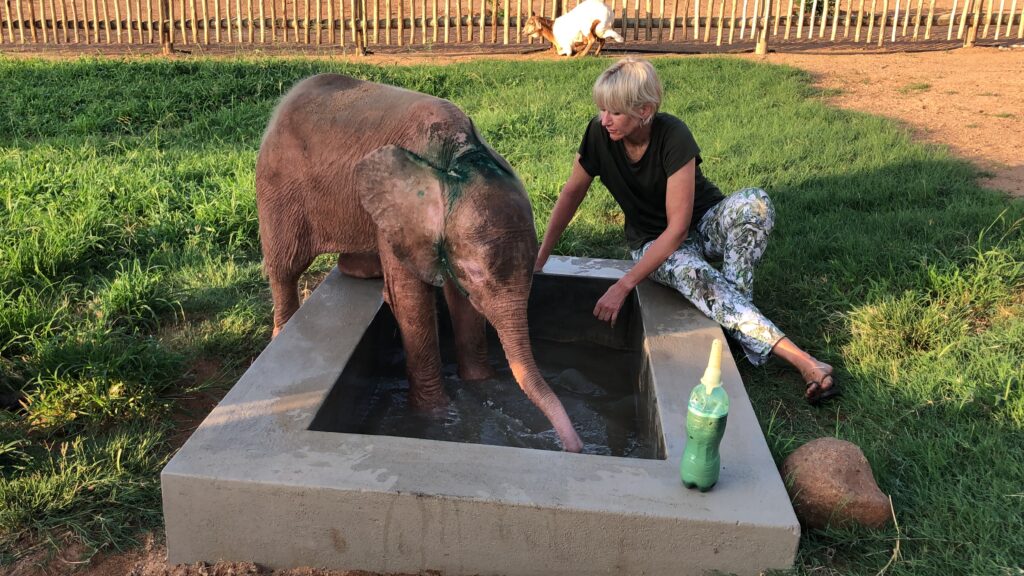
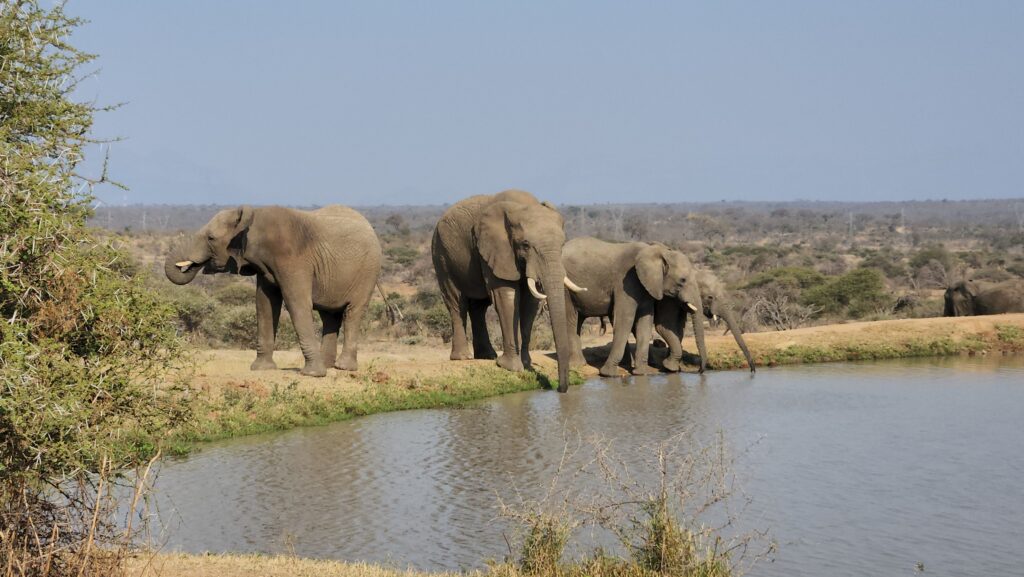
How is water used at HERD?
Water lies at the heart of HERD’s mission. It is vital to many aspects of our operations, including the following:
- Water is used to irrigate our bana grass plantation, which is a crucial source of supplemental food for the elephants.
- Water is pumped to the troughs in the homestead, to provide the elephants with water to drink throughout the night.
- Water is pumped to the troughs in the orphanage, providing drinking water to the orphans and the companion sheep.
- Water is pumped to some of the waterholes on the reserve, where it benefits both the elephants and other wildlife.
- Drinking water is used by all HERD staff.
Which of these operations rely on electricity?
All of the operations mentioned above rely on electricity to pump water. Without electricity, no water can be pumped. That means that during South Africa’s scheduled blackouts (known as loadshedding), we cannot pump water and many of our operations come to a standstill. Water is not just a resource for us; it’s a lifeline.
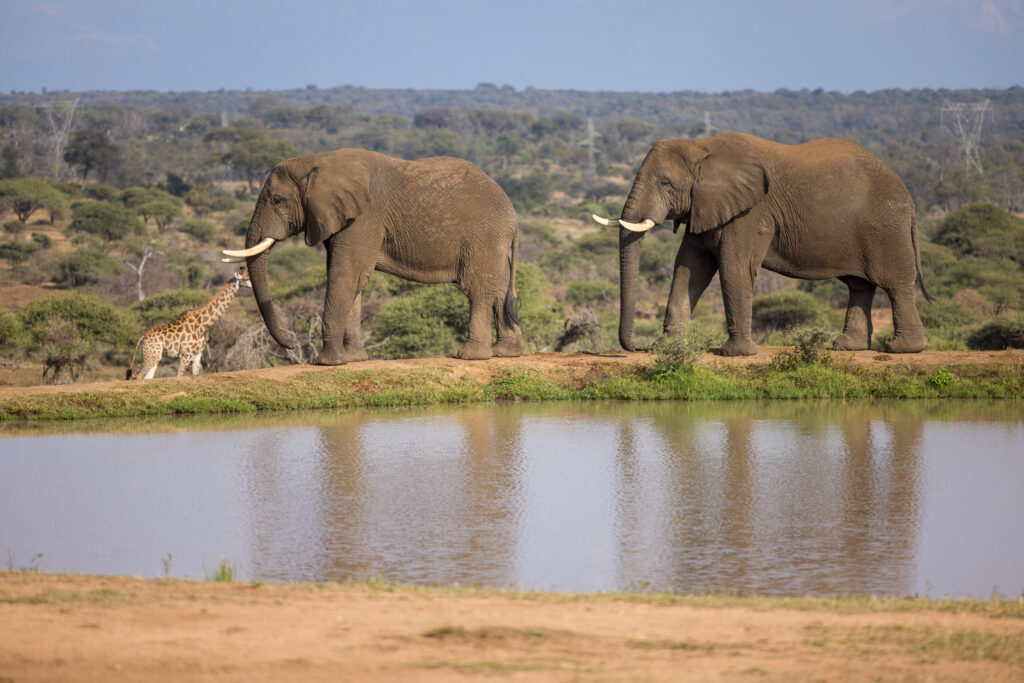
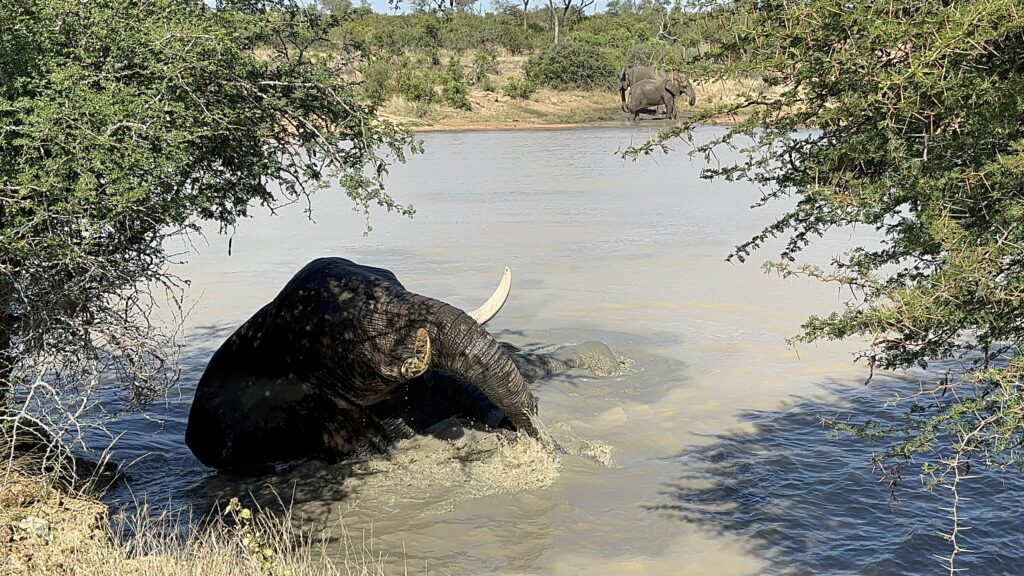
How will solar power give HERD reliable access to water?
Our current reliance on electricity to pump water underscores the need for a different approach. This is one of the reasons why we recently launched a campaign to raise funds to transition to solar power. Relying on nonrenewable energy to power our operations is both unreliable and unsustainable. By harnessing the sun’s energy, we not only lessen our environmental impact, but also gain greater control over our operations. If we transition to solar power, we can be sure that we have consistent access to electricity and, therefore, to water.
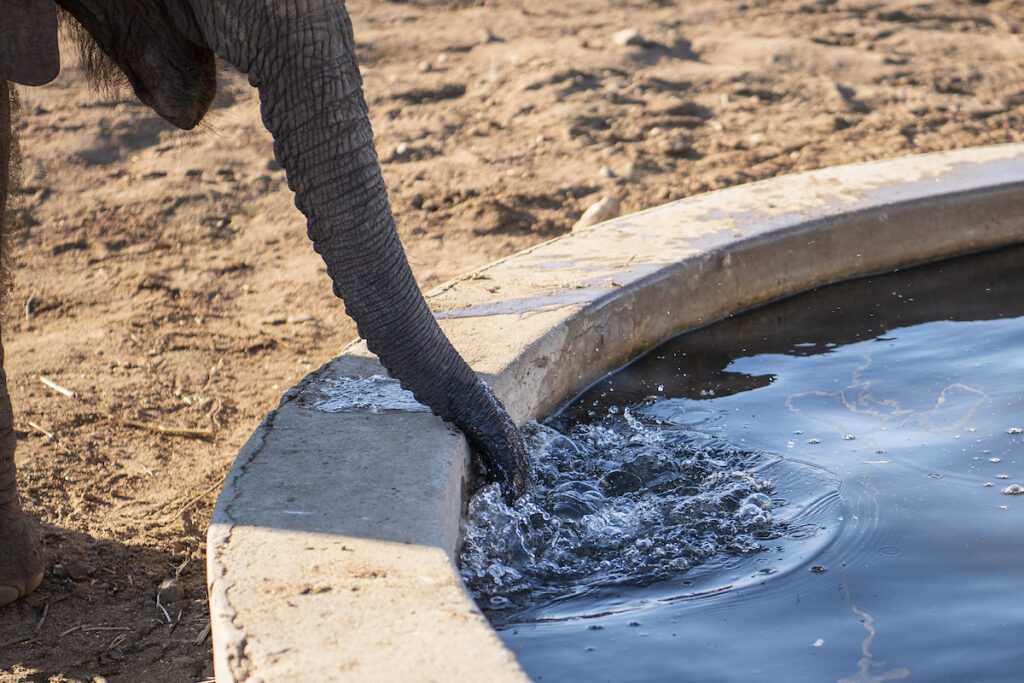
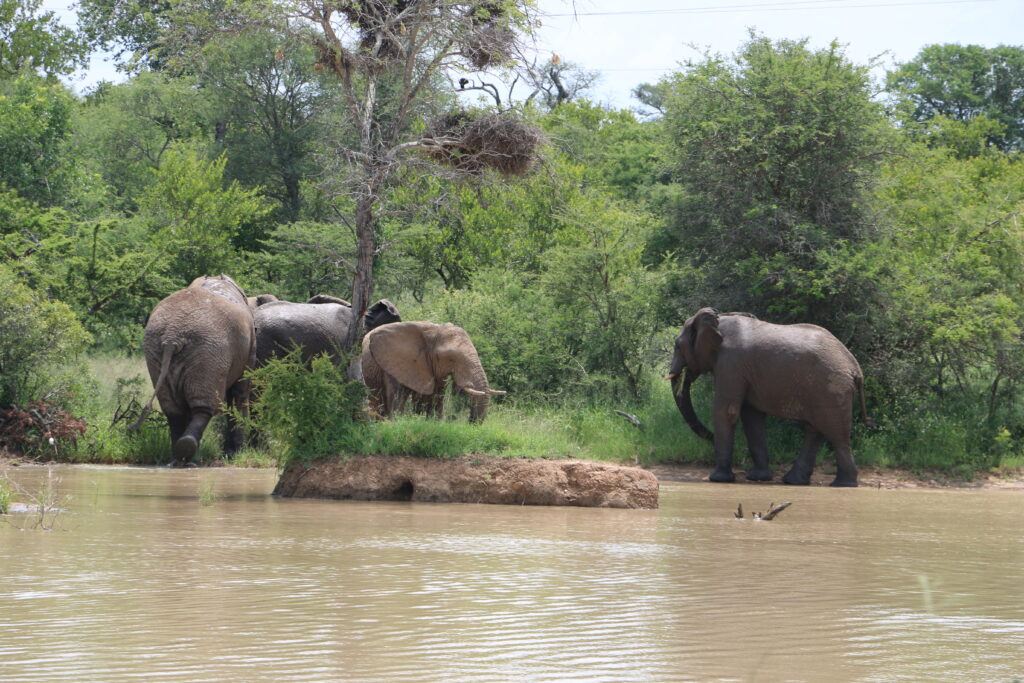
How does water scarcity contribute to human-wildlife conflict?
The theme of World Water Day 2024 – leveraging water for peace – prompts us to consider the relationship between water and peace. Water scarcity can exacerbate tensions between humans and wildlife. In areas where humans and wildlife compete for the same limited resources, there is a risk of human-wildlife conflict. In areas experiencing drought, wild animals may wander into human-populated areas in search of water, or they may raid crops if there is a lack of vegetation elsewhere.
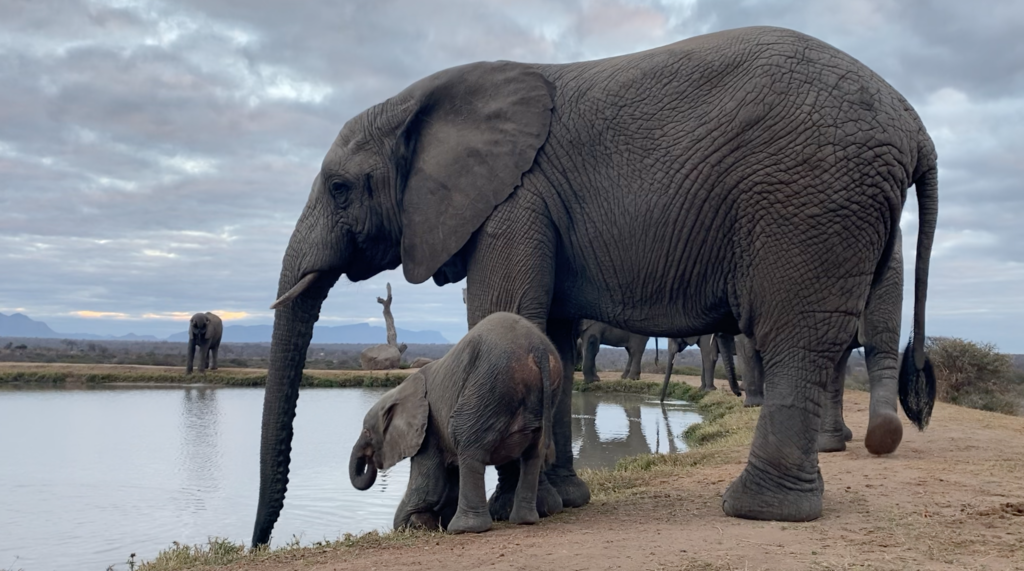
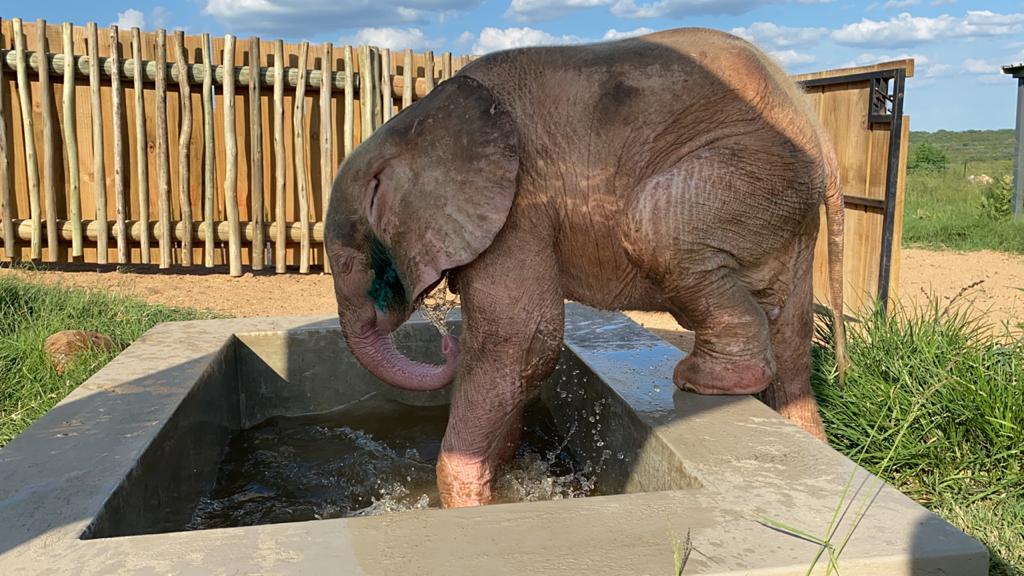
Join us on our journey
As we commemorate World Water Day, we invite you to join us on our journey towards sustainability. Your support for our solar fundraising campaign will help ensure that we have reliable access to water. You will contribute to the elephants, our operations, and the entire ecosystem that surrounds us.
To learn more and contribute, please visit this page: Solar Campaign | HERD.




 Comment
Comment

